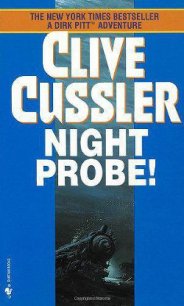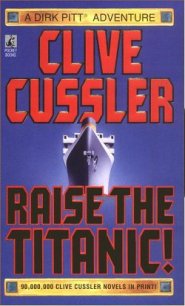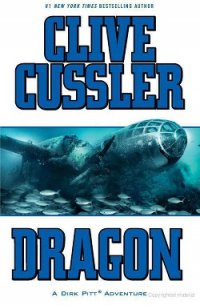Plague Ship - Cussler Clive (полные книги .TXT) 📗
The Oregon was fifteen miles from the island when its image from the UAV slowly resolved on the main monitor like a gray lump on the otherwise-brilliant seas that gave this part of Turkey the nickname Turquoise Coast.
George flew the drone over the eight-mile-long island at three thousand feet, high enough so its engine couldn’t be heard, and, with the sun beginning a rapid slide into the west, it would be near impossible to see. Eos was nothing but barren rock and the occasional scrub pine. He focused the UAV’s camera on where the Responsivists had built their bunker, but there was nothing to see. Any entrance remained well camouflaged, from this altitude. The only way to know it was even there was the paved road that terminated at the base of a low hillock.
“Hali, capture a couple stills off the feed and enhance them,” Juan ordered. “See if you can find any doors or gates at the head of the road.”
“I’m on it.”
“Okay, George, swing us around. I want to check out the beach and dock.” Using his joystick, Adams banked the remote-controlled plane back over the sea so he could approach the dock from out of the sun. The beach stretched for only a few hundred feet, and, rather than soft white sand, it was composed of waterworn rock chips. Sheer cliffs rose more than a hundred feet on either side of the beach, hemming it in completely. The cliffs themselves appeared unassailable without climbing equipment and a few hours.
The dock was situated at the exact center of the beach, an L-shaped jetty that thrust into the water a good eighty feet before the seafloor fell away enough for the small freighters that had brought the equipment to build the facility. The causeway looked sturdy, and was more than wide enough for the excavators and cement mixers that had once swarmed the island. A corrugated-metal building sat where the jetty met the road. A parapet wrapped around the flat roof, giving a wide-open field of fire for anyone up there. They also had an unobstructed view of the sea approaches. A pickup truck was parked behind the guardhouse.
They could see two guards with high-powered binoculars on the roof, automatic weapons at their sides.
Another pair of guards was walking the jetty, while two more patrolled the beach.
Any communication lines they had with the main facility were buried, so there was no way to knock them out in order to isolate the guardhouse. Juan imagined Zelimir Kovac had laid out the security, and he would have left standing orders that, at the first sign of anything suspicious, the bunker was to be notified so it could go on immediate lockdown.
“Switch to thermal imaging,” he said.
The scene on the monitor changed, so that nearly every detail dropped out, except for the body heat given off by the guards. There were teams of two atop each cliff they hadn’t noticed on the visual scan.
“What do you make of those trace signals next to the guys on the cliffs?” George asked.
“Small engines cooling down. Most likely ATVs similar to the ones they had in Corinth. Heck of a lot of fun to ride, provided no one’s shooting at you.”
Cabrillo was more interested in the signal emanating from the road. It was waste heat from their power plant, just as Eric had said. They had done an excellent job of masking the heat signature. To even the most trained observer, it looked like the road was merely radiating heat built up during the day. The dull-orange line on the thermal scan continued out along the jetty, before spreading nearly the width of the dock.
It had to be a diffuser, he thought, to further mask their heat signature.
He saw no sign of the air-intake manifolds.
Cabrillo hit an intercom button, so he could speak to Eddie and Linc, who had been watching the aerial reconnaissance on a monitor in the boat garage. “What do you think?” He knew the answer, before Eddie replied, “We’re going to pay a hell of a butcher bill, and there are no guarantees. Have you gotten any detailed shots of where the road ends?”
“Hali’s working on it now.”
“They’re coming up on screen,” Kasim said.
The enhanced stills flashed onto the monitor, and everyone eyed them carefully. The road simply stopped at the hill. They knew there had to be doors to allow entrance, but they were too well hidden.
“Depending how armored they are, we might be able to blast our way in,” Eddie offered with little enthusiasm.
“We don’t know if it’ll take a couple of ounces of C-4 or a cruise missile.”
“Then we use the Nomad, to get us in close to shore, and try to find the air intakes. We’ll need a torch to cut our way out of the pipe, once we get inside,” Eddie said. “I just wish we had more time to let the sun go down.”
The orbital track of the Russian satellite had dictated the time of their assault, and there was nothing anyone could do about it. Juan looked at the clock again just as the hour display clicked to zero.
“What are those two guards on the dock doing?” George asked, after flipping the drone’s cameras back to visual.
“Laying down on the job, it looks like,” Juan remarked absently.
“I think there might be something in the water. I’m going to swing the UAV around for a better view.” WITHOUT LIGHT, Max had no way to determine how much air remained in the tank, but he estimated he had been crawling for twenty minutes. As much as he had tried to keep his breathing as shallow as possible, he knew he was using up the precious air at a prodigious clip, and there was no end in sight.
The tunnel ahead was as inky as the length stretching out behind him.
Another ten minutes and he could feel it growing more difficult to breathe. The tank was approaching empty. Soon, he would be breathing the last of the air trapped in his suit, and then he would begin to suffocate. Spending so much of his life at sea, Max had always thought he’d die drowning. He had just never considered drowning in a vortex of noxious jet exhaust.
Doggedly, he plodded on, gaining a foot with each four-legged pace. The outer suit was a charred ruin, and pieces of it were tearing away, especially at the knee. Fortunately, the single layer of protection remaining was more than ample.
Kyle will be okay, he thought. He was certain that, no matter what, Juan would rescue his son again. And because of the fiasco the first time, he would use a different shrink to help deprogram his mind. The Chairman never made the same mistake twice, even if he didn’t know what had caused it in the first place. Max even believed that he would figure out that it was Dr. Jenner who had betrayed them, though he knew Juan would never guess Jenner’s true identity. He could hardly believe it himself.
Dying to rescue a child, he mused. He couldn’t think of a single greater cause to die for. He hoped someday Kyle would come to recognize the sacrifice, and he prayed his daughter would forgive her brother for their father’s death.
“Pain . . . can . . . be . . . ignored.”
It felt as though he were climbing Everest. He needed to breathe as deeply as possible to suck in enough air, but each time he did he ribs screamed. And, no matter how deeply he inhaled, or how much he ached, his lungs never felt full.
His hand smacked something in the darkness. His engineer’s sensibilities were instantly insulted. An exhaust shaft like this should be completely clear of obstructions in order to get peak efficiency out of the turbines. He felt around the object and gave a giddy laugh. It was the spare air tank that had been sent tumbling down the duct. In its mad flight up the exhaust vent, it had finally come to rest with its more aerodynamic top facing into the flow.
Max hurriedly unplugged his nearly depleted tank and jacked in the fresh one. The air was just as stale and metallic, but he could care less.
Fifteen minutes later, he saw the proverbial light at the end of the tunnel. The duct widened and flattened into a diffuser, to help mask the hot exhaust from thermal imaging. The stealth bomber and fighter used something similar. The pressure of hot exhaust diminished when he removed his tank and got on his belly to crawl into the diffuser. There were thin vertical bars over its mouth to prevent someone from entering the duct.




